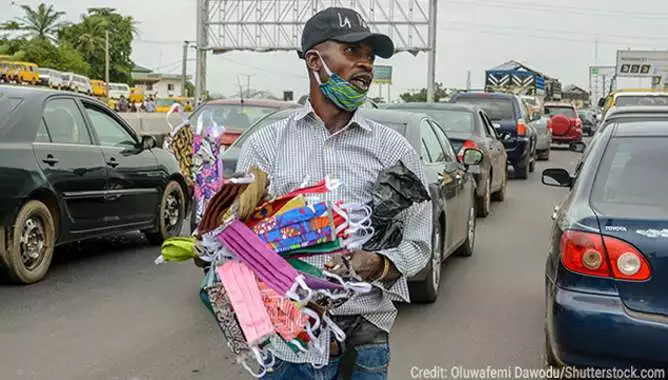The use of face masks in public places is no longer compulsory, and is now a matter of choice, according to the Presidential Steering Committee on COVID-19.
The Committee,also, said the decision on when the final relaxation of measures will be taken will be the after the Easter festivities, when the current downward trend of infections will be monitored.
In an interview with The PUNCH monitored in Lagos, Secretary of the PSC on COVID-19, Muktar Muhammed, said Government has already suspended limits placed on public gatherings.
This follows the trend of other countries worldwide which are relaxing COVID restrictions.
Ghana was the first West African country to end the use of face masks in public places.
“We are easing up restrictions, but it’s important we do so responsibly”, he reportedly said.
“Last week, we suspended the limit placed on public gatherings, curfews and other social measures.
“The use of face masks in open spaces is now discretionary.
“We shall not hesitate to remove all mandates once the disease is no longer of public health consequence. We are aware that cases are rising in the Western Pacific and Eastern Europe. The US just mandated a fourth dose of COVID-19 vaccine for adults older than 50. We fear a reversal of the pandemic situation, where largely unvaccinated poor countries will be made to bear the burden, because the West has developed very high immunity through large scale vaccination.
“Our biggest fear now is the upcoming Easter holidays. If we are able to cross and the cases continue to go down with no significant increase in hospitalisation and death, then certainly, we will lower down our level of alertness and relax most of the measures.
“We are working with data and algorithms to determine our line of action. Everything depends on what happens next. We learn from other countries, but we don’t have to necessarily copy what they are doing. Every country should evaluate its risk and take responsibility.”
Discover more from The Source
Subscribe to get the latest posts sent to your email.








